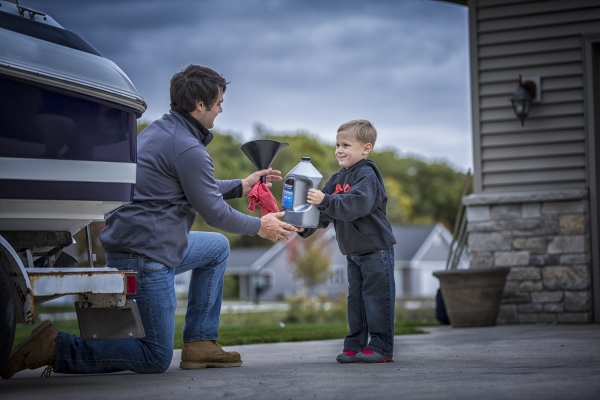One of the first things you should check is your fuel system. You are going to want to check it for any leaks or damage. Take a look at your fuel hose and the connections at the tank and motor. Also, if you know your fuel line is old and it obviously has seen better days, you may want to think about replacing it. Older fuel lines will start to break down and fall apart, causing fuel related issues with the motor such as hose debris in the carbs. Softness, brittleness, or cracking are tell tail signs that you have a bad hose or a hose that may be on its way out. Make sure you also check all of the fittings and clamps to ensure that they are tightly in place.
The next thing you should look at is the electrical connections. Make sure that these are all clean, tightly secured, and that there is no corrosion. If you do have corroded terminals, clean them off with a wire brush as well as the cable ends. You should also test your battery and see if it can hold a charge. You don't want to over look this simple step and end up figuring out when your at the lake.
Another easy thing to examine is your propeller. Make sure that it is secure and look for any damage such as dings, cracks, or distortion in the blades. These things will not only cause a bad vibration, but also harm your drive train.
Last but not least, check your fluid levels such as the engine oil, gear lube, power steering, and power trim reservoirs. If you need to do your recommended yearly oil change, make sure you also change the oil filter. We have oil changing kits here at Vans Sport Center that have everything you need to do the job. Another thing we recommend is to change the gear lube if you didn't do it last fall.
This list really only takes a half an hour or so to go through and if anything needs to be replaced it will obviously take longer, but it is way better than having your boating season slammed to a halt in the peak of summer.


